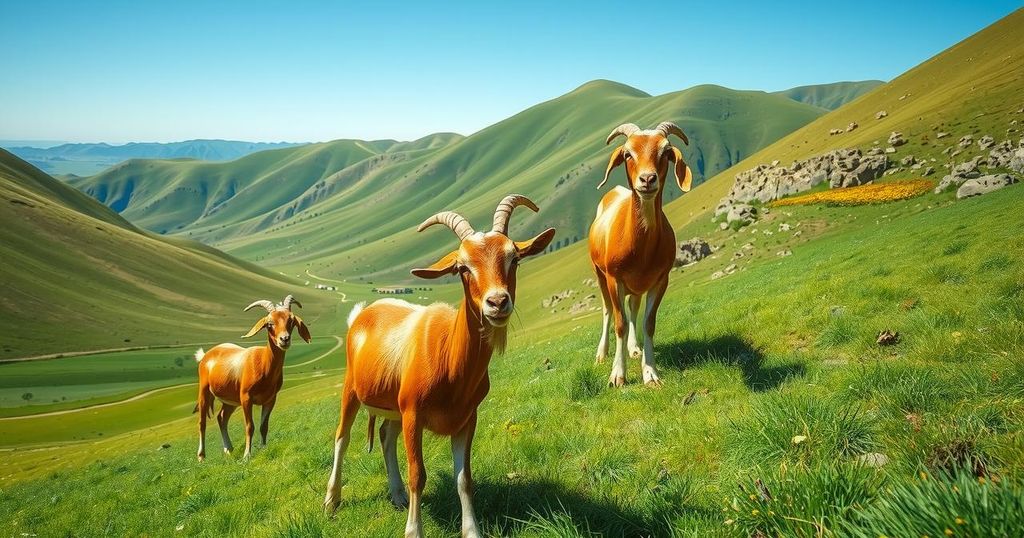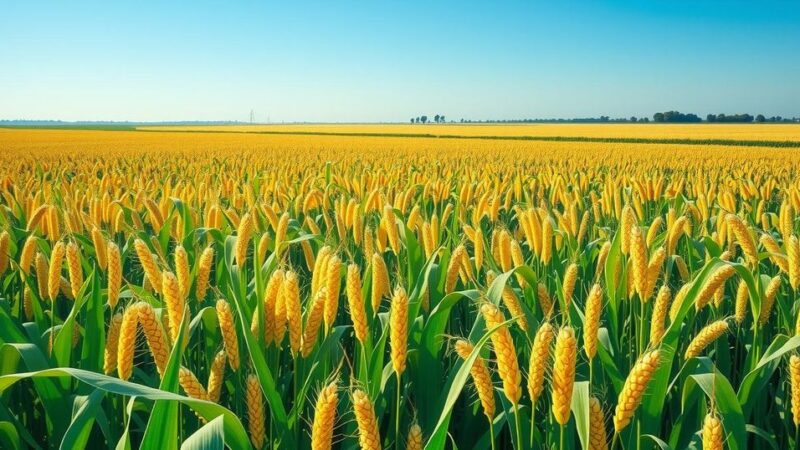Women goat herders in Ovalle, Chile, are confronting climate change by modernizing their cheese production. With a history dating back to 1544, they are adapting to severe droughts affecting their resources. Many have received international acclaim for their cheeses, while addressing the pressing challenges of water scarcity by altering traditional grazing practices and investing in resilient farming techniques. The aim for designation of origin for their unique goat cheeses further emphasizes their commitment to preserving their heritage amid environmental change.
In the municipality of Ovalle, northern Chile, women goat herders are adapting to climate change while maintaining their rich heritage. Historically, the goat herding tradition in Chile dates back to 1544, but current prolonged droughts necessitate innovative approaches. By improving product quality and variety, many women have garnered international recognition for their cheese, showcasing resilience amidst environmental challenges.
The drought in 2024 resulted in only 89.2 millimeters of rainfall, significantly impacting water availability for goats and leading to a shift towards more confined herding practices. Traditional itinerant grazing, which has characterized goat herding in the region, is being altered as herders increasingly spend time in stables or corrals, providing supplementary feed.
Yasna Molina, a notable goat herder from Villaseca, illustrates this change; her award-winning blue cheese, Anqas, reflects her commitment to her craft despite these challenges. She emphasizes the adverse effects of prolonged drought, which has lasted approximately 25 years, on goat productivity and well-being.
Despite changes in grazing patterns, Molina actively supplements her herd’s diet with various feed options, demonstrating adaptability in response to climate conditions. She observes that while Saanen goats produce more milk, Criollo goats are better suited for resilient practices in the changing ecosystem.
In the Coquimbo region, home to over 5,391 goat cheese producers, the majority are small-scale herders, with women comprising over 60%. Many are being compelled to migrate to higher elevations in search of grazing land, thus impacting their traditional practices. The migration reflects the urgency with which these communities are responding to the profound challenges posed by climate change.
Experts such as agronomist Claudia Torres stress that small herders are especially vulnerable due to their reliance on natural pastures, exacerbated by unsustainable agricultural practices and overexploitation of resources. The implications of dwindling water supplies are profound for all goat producers in the area.
Molina’s award has inspired her peers, prompting an interest in diversifying cheese flavors and approaches to mitigate the effects of drought. Other women goat herders, like Elsa Araya and Juana Pérez Milla, are also taking steps to improve their production systems and adapt to resource limitations. Araya has utilized state support for drip irrigation, while Pérez Milla has expanded her cheese offerings, influenced by her experiences abroad.
The historical significance of goat cheese production in Chile is coupled with a modern renaissance driven by health-conscious consumers. Goat cheese is celebrated for its lower fat content and nutritional benefits, highlighting the potential of Chile’s goat industry in the international marketplace.
Molina asserts that their unique local terroir enhances the distinctiveness of their cheese, and she is optimistic about achieving designation of origin for her products. Torres is actively pursuing the same for various styles of goat cheese produced in Ovalle, which would elevate its value and secure protections for the heritage of goat herding in the region. This initiative represents a critical step in addressing the challenges posed by climate change while promoting the sustainability of traditional practices.
Women goat herders in Chile’s Ovalle region are making significant strides in adapting to climate change by enhancing their cheese production while preserving their cultural heritage. Despite the challenges posed by prolonged drought, they showcase resilience and creativity by diversifying their products and employing new techniques. Their efforts not only contribute to local economies but also aim for recognition on the global stage, highlighting the importance of sustainable practices while advocating for the protection of their traditions and the environment.
Original Source: www.globalissues.org






